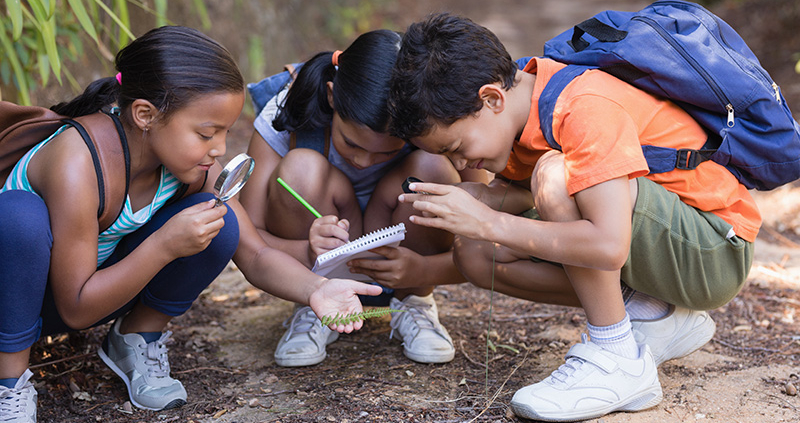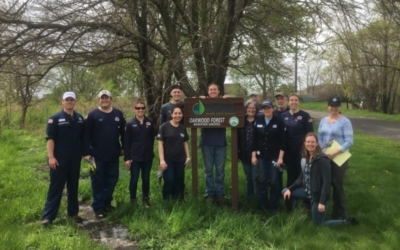New White Paper Discusses How Corporations Can Support Inclusive STEM Education Opportunities
BETHESDA, MD, February 23, 2023 – WHC (Wildlife Habitat Council) offers a new white paper available for download today, The Corporate Role in Inclusive STEM Education Opportunities | Strategies to Create and Support Meaningful STEM Programs That Benefit Students, Communities and Companies. The white paper is sponsored by BASF and is available for free on our website.
With skills in science, technology, engineering and mathematics (STEM) of critical importance in today’s job market, adequately preparing the future STEM workforce means integrating STEM education into school curricula and community educational opportunities for all students. Even with the demonstrated value of STEM skills and the exponentially growing job market, disparities persist in the global STEM workforce, with women, people of color and people with disabilities disproportionately under-represented in STEM-related careers. The corporate sector can play a key role in ensuring that every student — regardless of gender, orientation, race, socioeconomic status or ability — has access to meaningful STEM learning opportunities.
This white paper discusses how corporations can create or support inclusive STEM education opportunities that benefit students, the surrounding community and the company itself. Sponsoring or leading STEM education initiatives provides an opportunity for companies to invest in their local communities while cultivating the knowledge base of a future talent pool, and many companies have recognized the value of incorporating STEM education projects into their on-site conservation efforts.
Case studies in the white paper include:
- Bayer: Muscatine Plant and Big Sand Mound Nature Preserve, Iowa, USA
- CEMEX: Atotonilco, Hidalgo, Mexico
- Chemours: Chambers Works, New Jersey, USA
- Covia: Planta Ahuazotepec, Puebla, Mexico
- DTE Energy: River Rouge Power Plant, Michigan, USA
- Eastman: Texas Operations, Texas, USA
- Freeport-McMoRan: Morenci Mine, Arizona, USA
- General Motors: Joinville Engine, Santa Catarina, Brazil
- PPG: Monroeville Business and Technology Center, Pennsylvania, USA
- WM: King George County Landfill, Virginia, USA
Sponsored by BASF, this white paper includes a foreword from Mark Patterson, Vice President – Environment, Health and Safety, BASF Corporation, who states, “Working with institutions, communities and volunteers, BASF is helping imagine the possibilities that Science, Technology, Engineering and Math (STEM) offers for their future and for the world. Through BASF’s programs, students conduct experiments, explore institutional settings and experience workplace environments that provide insight for different ages and interests.”
About WHC:
For 35 years, WHC has been promoting and certifying ecological stewardship action on corporate lands through partnerships and education. Since only 10-15% of the world’s land surface is protected, private lands provide an essential opportunity for restoring and protecting biodiversity. As the only international conservation NGO focused exclusively on the private sector, WHC provides a framework for voluntary conservation action on a wide variety of corporate lands. WHC’s corporate members represent some of the leading national and multinational corporations seeking to support sustainable ecosystems and the communities that surround them. These efforts have resulted in more than 1,000 certified programs across 47 states and 28 countries.



